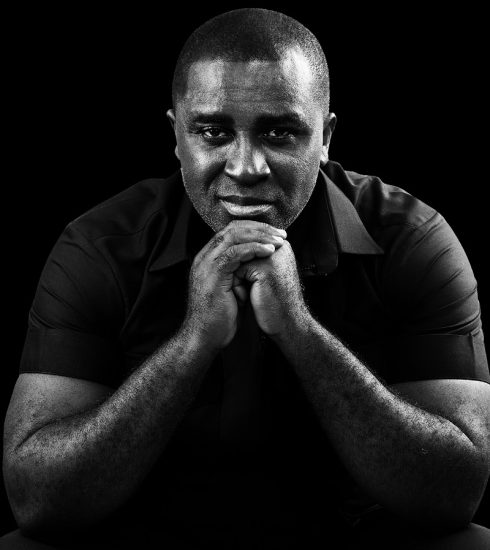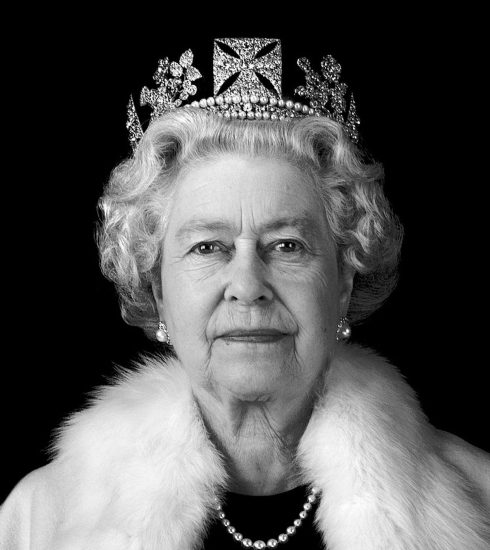Claudia Kwarteng-Lumor: From Glitz to Global Impact
Over the years, Africa’s media and creative industry has continued to evolve, shaping how the world sees the continent. From fashion to film, journalism to digital storytelling, we’ve witnessed a new generation of visionaries who are boldly rewriting narratives once told from a limited lens. Across Africa, these changemakers have built platforms that celebrate African excellence, creativity, and innovation.
One of such visionaries is Claudia Kwarteng-Lumor, founder of Glitz Africa magazine and CEO of Kollage Media, whose passion for changing the African narrative led her to create a platform that celebrates the continent with class and purpose. Through Glitz Africa, she has built a Pan-African lifestyle brand that extends beyond print with initiatives like She Boss Global, Ghana Women of the Year Honours, Glitz Style Awards, Glitz Africa Fashion Week, SheAfrica Dialogue, and the Glitz Africa Care Foundation, all aimed at empowering women and inspiring the next generation. Recently, Kwarteng-Lumor was appointed United Nations Global Ambassador for the Waterlight Save Initiative (WSI), championing access to clean water, healthcare, and education across underserved communities.
In this interview with THEWILL DOWNTOWN’s Executive Editor, Onah Nwachukwu, Claudia Kwarteng-Lumor discusses her journey as a publisher and entrepreneur, the story behind Glitz Africa, her vision for She Boss Global, her appointment as a UN Global Ambassador, and how she continues to change the game across media, fashion, and women’s empowerment in Africa.
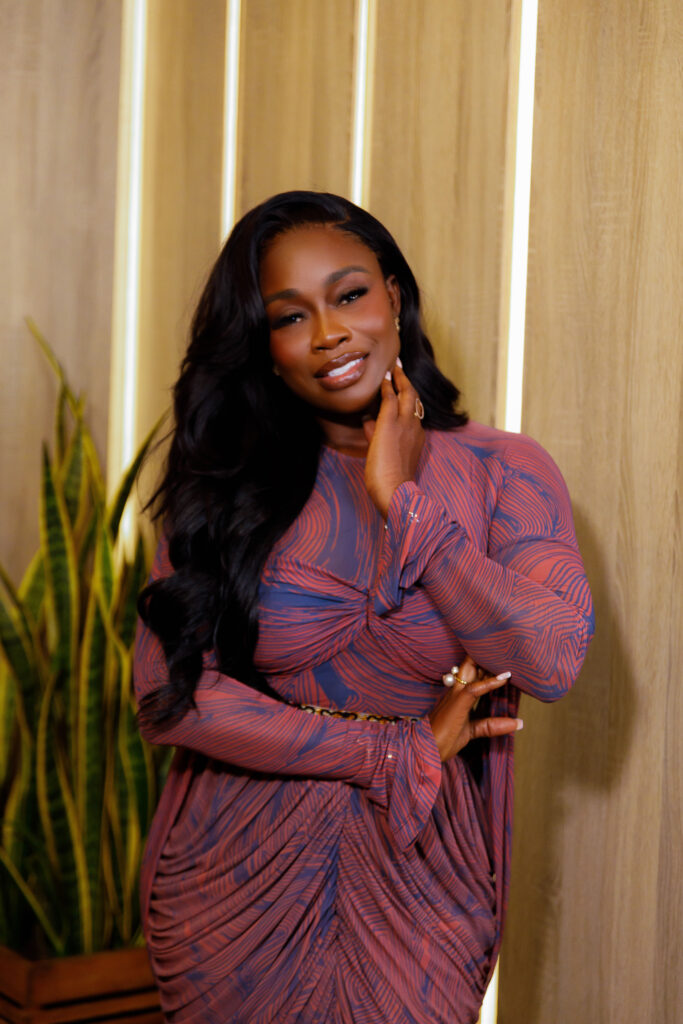
Looking back to your transition from banking to publishing, what were the misconceptions you had about the publishing and media industry that reality later corrected?
My journey began in corporate banking, starting at Santander Bank in the UK and later transitioning to Stanbic Bank in Ghana. That world is defined by rigid structures, clear metrics, and predictable cash flows. My biggest misconception about the media and publishing industry was that it operated with the same level of discipline. For me, I thought there was a predictable revenue. I believed if the content was excellent, the advertising revenue would follow a predictable, quarterly pattern. I learned that in the nascent Ghanaian and African media space, the industry was far less formalised and much more susceptible to economic volatility. You have to be an entrepreneur every single day to secure partnerships, not just a publisher.
I also thought, content alone is King. In banking, a great product almost sells itself. In media, a great magazine is only the beginning. The biggest truth I learned is that publishing is just the foundation for building an ecosystem. The content has to jump off the page and into real life through events, forums, and experiences, which is how Glitz Africa Fashion Week and She Boss were born.
Many publishers chase trends, but Glitz Africa has consistently projected timeless, aspirational African stories. How do you balance “what sells” with “what matters”?
This balance is the single most important decision in publishing. At Glitz Africa, the core mission is to promote a tasteful depiction of Ghana and Africa, showcase our icons, and inspire others. We have achieved the balance through two key strategies:
Redefining ‘What Sells’: For us, ‘what sells’ is no longer just fleeting trends or celebrity gossip. We position aspiration as the selling point. We feature successful, inspirational personalities who are making a real impact, whether in business, philanthropy, or the arts. This approach ensures that our audience buys the magazine not for a quick fix, but for lasting inspiration.
Integrating ‘What Matters’: We use our commercial content fashion, beauty, and luxury lifestyle to subsidise and drive attention to ‘what matters’ social issues, entrepreneurship, and empowerment. Our extensions, like the Ghana Women of the Year Honours or the Glitz Africa Care Foundation focused on maternal health and women’s advocacy, are the direct vehicle for ‘what matters’. The magazine provides the aspirational platform; the initiatives provide the tangible impact.
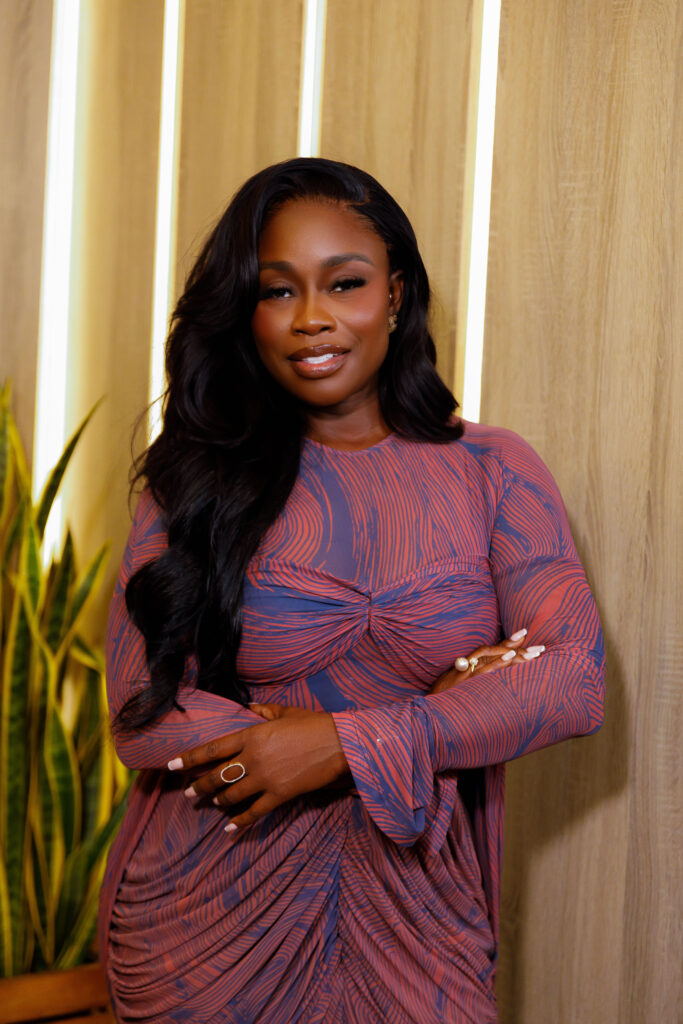
Glitz Africa is not just a magazine but a whole ecosystem of events, forums, and initiatives. What’s the one thing you believe unites all these extensions under the “Glitz” identity?
The one unifying element across the entire Glitz ecosystem is the commitment to Excellence in African Aspiration. The magazine, the fashion week, the awards, and the forums, all of them serve as platforms to move the conversation about Africa from merely surviving to absolutely thriving. We aim to show the world, and more importantly, Africans themselves, that we are capable of creating and demanding global standards, be it in media, fashion, or business. The Glitz identity is about polish, purpose, and pioneering a better narrative for the continent.
Starting in 2011, you practically pioneered Ghana’s fashion media landscape. What was the hardest resistance you faced in convincing people that fashion could be an industry, not just an art form?
The hardest resistance came from the mindset that fashion was a hobby or merely a social event, not an economic engine. It was a struggle to convince two main groups: The Corporate Sector: Getting large corporate entities, who are used to financing established industries, to see fashion as a viable, bankable sector worthy of major sponsorships. We had to consistently present data on the value chain: manufacturing, logistics, media, and retail, demonstrating the potential for job creation and export revenue.
The Creatives Themselves: Convincing designers and artists to shift from an ‘art-for-art’s- sake’ mentality to understanding things like intellectual property, production scalability, and distribution. We had to teach them that professionalism and business rigour do not stifle creativity, but rather unlock its true commercial value.
Our work through Glitz Africa Fashion Week was pivotal in providing a high-quality, organised, and global-standard showcase, which literally demonstrated the industry’s potential to the world.
With She Boss Global, you’ve built a network for women to collaborate and grow. In your experience, what’s the biggest unspoken challenge women entrepreneurs face, beyond access to funding?
Beyond the critical issue of funding, the biggest unspoken challenge is ‘The Pressure of the Perception of Perfection’. Women entrepreneurs, especially those juggling family, are constantly under pressure to appear flawless: a perfect mother, a perfect wife, and a perfect CEO. This forces many to internalise their struggles. They won’t admit when they are overwhelmed, burned out, or simply need help because they fear it will be interpreted as a lack of capacity to lead, which in turn could jeopardise future opportunities or funding. She Boss Global and the She Summit aim to create a space where vulnerability is seen as a strategic asset, a sign of humanity and strength, not a weakness, enabling women to seek mentorship and collaboration without judgment.
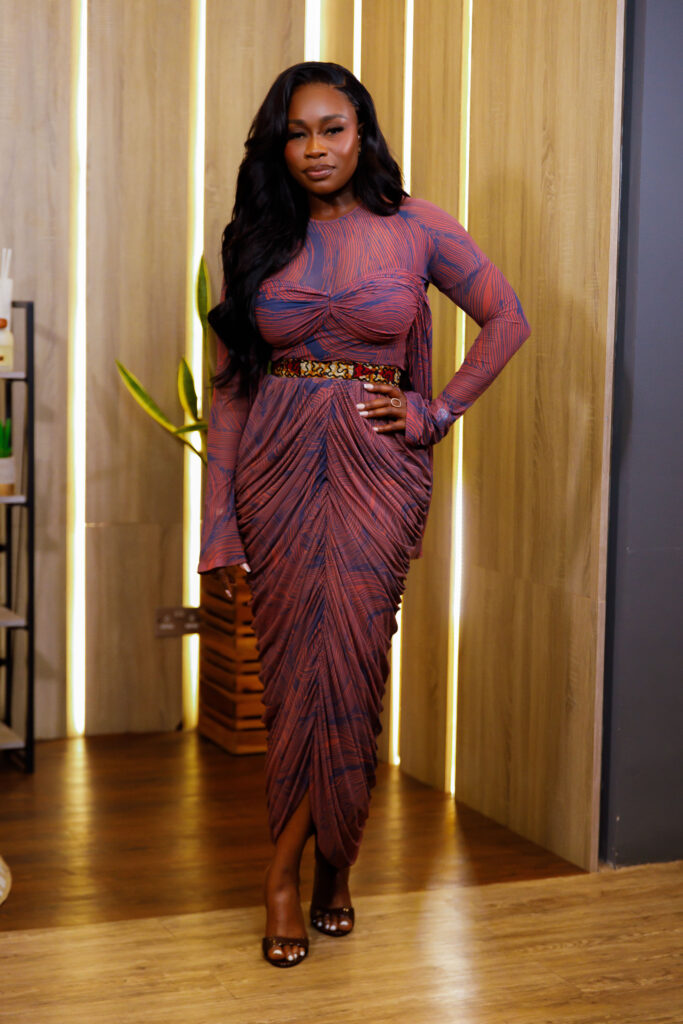
Do you think women in leadership sometimes unconsciously mirror the same rigid structures they’re trying to change? If so, how do you encourage authenticity in women’s leadership circles?
Yes, I believe that is a very real pitfall. It’s a survival mechanism. Many women have only seen one model of leadership, a hierarchical, rigid, top-down structure, and unconsciously adopt it because they associate it with being taken seriously or being powerful.
To encourage authenticity, we focus on two things:
- Redefining Power: We encourage leaders to see power not as dominance, but as the ability to empower others. Authentic leadership centres on empathy and emotional intelligence, qualities women naturally possess.
- Visible Mentorship: We actively showcase diverse, authentic female leadership styles at platforms like She Boss, including those who lead with softness, collaboration, and work-life integration. Seeing these different models succeed gives emerging leaders the permission they need to abandon the ‘rigid male mirror’ and lead as their true selves.
How do you measure the success of She Boss Global beyond the numbers, in terms of real impact on women’s lives?
While the numbers (attendees, members, funds raised) are important, the real measure of success for She Boss Global is in what I call The Unlocked Narrative. Beyond numbers: We track the qualitative impact of a woman moving from a place of isolation and self-doubt to one of confidence and action. This includes stories of: A woman who gained the courage to ask for a specific investment: An entrepreneur who stopped feeling guilty about taking time off: A creative who transitioned from a side hustle to a full-time, registered business.
The most profound success is seeing the change in a woman’s self-perception, when she stops seeing herself as ‘just a mother with a business’ and starts seeing herself as ’a visionary CEO who happens to be a mother.’ That shift in personal narrative unlocks everything else.
She Boss Global has already created a strong community in Ghana, inspiring and empowering women across industries. With Nigeria being such a hub for women entrepreneurs and creatives, are there plans to host She Boss in Nigeria soon?
Nigeria is not just a hub; it’s a powerhouse of female entrepreneurship and creativity, and a key market for our long-term vision. We already have a strong connection with Nigeria, as many of our Glitz features and event attendees are Nigerian trailblazers. We are actively laying the groundwork for a major She Boss Global event in Nigeria. The goal is not just to host a conference, but to create a high-impact, authentic collaboration that respects the unique dynamism of the Nigerian businesswoman. We would focus on strategic networking and workshops tailored to Nigerian market dynamics, such as scaling digital businesses, attracting international capital, and building resilient creative enterprises. We believe bridging the powerhouse communities in Ghana and Nigeria can only strengthen the collective growth of women across the continent.
If you could rewrite the narrative of African media globally, what’s the one stereotype you would completely erase, and what would you replace it with?
I would completely erase the stereotype of The Singular African Struggle. This is the monolithic, often one-dimensional portrayal of the continent defined only by conflict, crisis, or poverty. It negates the complexity of our reality. I would replace it with the narrative of African ingenuity and abundance. This is the story of a continent rich not only in resources but in human capital, creativity, and boundless innovation, the stories that Glitz Africa strives to tell every day. It’s about showcasing our successes in technology, our vibrant fashion, our global music impact, such as Afrobeats, and the entrepreneurial resilience of our people.
You’ve worn many hats; banker, publisher, ambassador, advocate, wife, mother. Which of these roles has most shaped how you lead today, and which role do you think people underestimate the most?
The role that has most profoundly shaped my leadership is surprisingly Motherhood. Being a mother of three taught me the ultimate lessons in patience, emotional intelligence, resource allocation under pressure, and leading with unconditional conviction. It teaches you to prioritise and to pivot constantly, which is vital for any entrepreneur.
The role people underestimate the most is the role of Advocate/Humanitarian. My past experience as the UNFPA Ambassador for Ghana and my work with Glitz Africa Care Foundation have given me diplomatic skills and a fierce moral compass that translate directly to business leadership. Being an advocate is not just about charity; it’s about seeing fundamental human needs, forging alliances, often with foreign ambassadors and dignitaries, and mobilising resources for systemic change. This experience in high-stakes diplomacy is what truly informs my current global appointments.
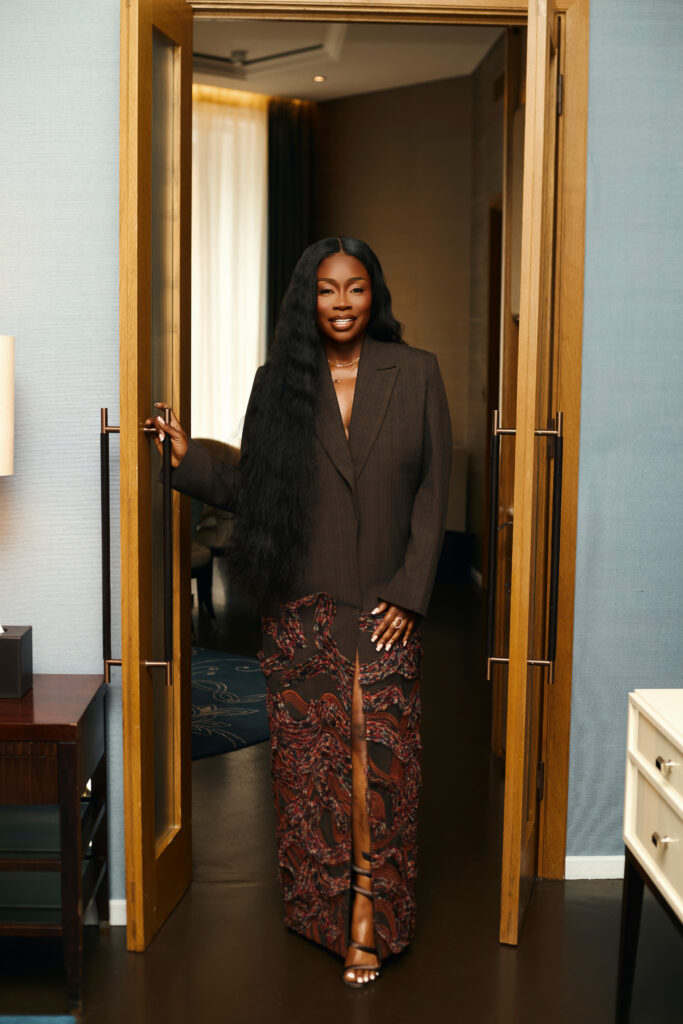
Congratulations on your appointment as the United Nations Global Ambassador for the Waterlight Save Initiative. This role is clearly more than just a title for you; it’s a call to serve humanity. How do you plan to translate this vision into tangible impact, especially in communities where access to water, education, and healthcare is still a daily struggle?
Thank you. This appointment is a tremendous honour and a direct extension of my decades of advocacy work for women and youth. The Waterlight Save Initiative (WSI) is dedicated to providing clean water, healthcare, education, and empowerment to underserved communities, and it operates under the strategic iHEAL Framework.
My plan to translate this vision into tangible impact focuses on three key areas:
- Resource Mobilisation and Partnerships: My primary focus will be on resource mobilisation. Access to water, education, and healthcare is a basic human right, not a privilege, and I will amplify this message on international platforms. I will use my network in business and diplomatic circles to solidify and forge new strategic partnerships to secure the necessary funding and technology for WSI’s grassroots projects in water, solar power, and health.
- Championing the iHEAL Framework (Healthcare, Education, and Empowerment): The iHEAL framework covers: Innovation, Healthcare, Education, Agriculture/Access to Clean Water, and Livelihood Opportunities. I will specifically champion the pillars related to healthcare and education. Drawing on my experience as a former UNFPA Ambassador, I will advocate for improved maternal health, child welfare, and access to medical care and education for vulnerable communities globally.
- Amplifying Diplomacy for Women and Youth: My role involves bringing a voice to the voiceless on the global stage. I will be instrumental in amplifying the WSI’s mission on international platforms, ensuring that the needs of women and youth are at the forefront of policy discussions related to sustainability and poverty. We aim to build pathways of hope, dignity, and opportunity for communities often left behind.
What legacy do you hope Glitz Africa and She Boss Global will leave behind 20 years from now that would make you feel your mission was truly accomplished?
The legacy I hope for is not just one of quantity, but of cultural permanence. For Glitz Africa, I hope it is remembered as the media house that rewrote the African aspirational standard. That it became an established institution that made it impossible for the world to think of African fashion, lifestyle, and business without a sense of global-standard excellence and dignity. I want it to be the constant, beautiful lens through which the continent is viewed.
For She Boss Global, I hope it is the network that made the journey of the African woman leader significantly less lonely and more equitable. That 20 years from now, the next generation of women entrepreneurs will simply expect access to funding, mentorship, and a global network, because She Boss Global made it the baseline standard, fostering a new era of collaborative female leadership.
Cover Image
Long Coat : Christie Brown @christiebrowngh
Photographer: Imagestudios @imagestudios
Cover Story Images
Dress: Christie Brown @christiebrowngh
Photographer: Aims Fotography @aims.fotography
A lawyer by training, Onah packs over a decade of experience in both editorial and managerial capacities.
Nwachukwu began her career at THISDAY Style before her appointment as Editor of HELLO! NIGERIA, the sole African franchise of the international magazine, HELLO!
Thereafter, she served as Group Editor-in-Chief at TrueTales Publications, publishers of Complete Fashion, HINTS, HELLO! NIGERIA and Beauty Box.
Onah has interviewed among others, Forbes’ richest black woman in the world, Folorunso Alakija, seven-time grand slam tennis champion, Roger Federer, singer Miley Cyrus, Ex Governor of Akwa Ibom State, Godswill Akpabio while coordinating interviews with Nigerian football legend, Jayjay Okocha, and many more.
In the past, she organised a few publicity projects for the Italian Consulate, Lagos, Nigeria under one time Consul General, Stefano De Leo. Some other brands under her portfolio during her time as a Publicity Consultant include international brands in Nigeria such as Grey Goose, Martini, Escudo Rojo, Chivas, Martell Absolut Elix, and Absolut Vodka.
Onah currently works as the Editor of TheWill DOWNTOWN.





